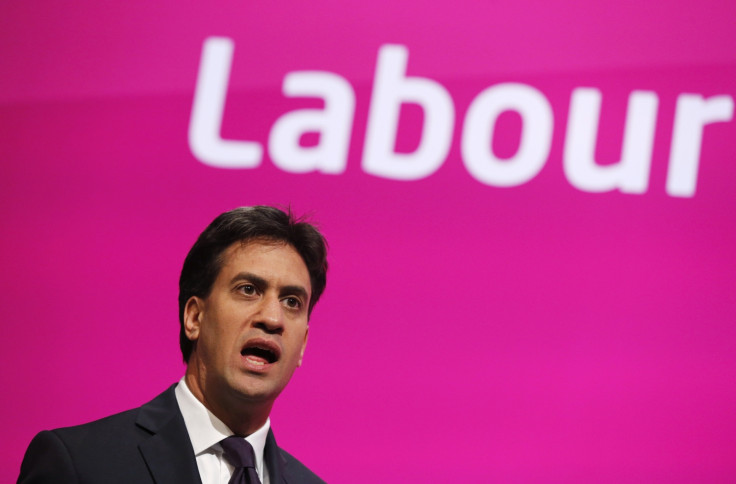Ed Miliband: Labour would consider new law to stop big firms 'bullying' suppliers

A Labour government would consider a new law to stop large companies from "bullying" their suppliers, Ed Miliband has revealed.
The Labour leader said his administration would look into legislating against so-called "pay to stay" charges.
The flat fees, also known as "supplier investment payments", are a levy on firms to remain or be put on a supplier list.
More than a quarter of a million (260,000) businesses face the "pay to stay" charges, according to a 2014 survey from the Federation of Small Businesses (FSB).
Miliband made the announcement as part of his speech to FSB national conference in Birmingham.
"We will bring in requirements for large firms to report on their record on late payment, including the action they have taken to compensate their suppliers," he said.
"And I am pleased that this is something endorsed by the government today."
The Labour leader added: "But of course recent events have highlighted another problem which needs dealing with too.
"Pay to stay charges from large firms for you to join or stay on their supplier list.
"I know we all believe in a simple principle: you should be paid for the product that you produce, not face what the FSB have called 'supply chain bullying'.
"I can't be clearer about this: this is wrong and it must end. And if it is necessary to legislate to end it we will."
Zero-hours contracts crackdown could kill crime scene firm
Miliband received a good reception from the 1,000 attendees at the West Midlands event, but faced opposition from one attendee who criticised Labour's position on zero-hours contracts.
Andrew Postlethwaite, of Devon based Virtual Reconstructions, warned that a crackdown on the flexible work contracts would harm his crime scene firm.
"As a small business, we need zero-hours contracts to help with our flexibility – we're not big enough to employ people full-time," he said.
"If murders don't happen on a regular basis, I can't employ people. The point being is that I'm in a niche market and I cannot predict the future."
He added: "I need the flexibility of being able to call on staff and experts as and when I need them, rather than them sat there as an overhead, twiddling their thumbs and waiting for the ambulance to go by."
Miliband explained that his party would ban "exploitative" zero-hours contracts, which would include stopping the practice of workers being locked to one company under the flexible employment agreements.
"What you don't really want are people on zero-hours contracts month after month when they're actually doing regular hours," the Labour leader warned.
"I'm in favour of flexibility but I think there's a place you get to where the burden of risk is just only falling on the employee. If you're a large employer, some of the risk has to be borne by you.
"How do you plan for your family for the future if you don't know from one week to the next whether you are doing no hours, three hours or five hours?"
The Office for National Statistics (ONS) said that UK firms used 1.8 million zero-hours contracts in the first two weeks of August last year, up from January 2013.
But the research body explained that the hike in the flexible work agreements could have been because of seasonal work.
Miliband's speech came after the Chancellor George Osborne and Liberal Democrat leader Nick Clegg addressed the FSB conference.
The political party representatives hoped to win over the small firms with just weeks to go before the general election in May.
The latest poll from YouGov, which was conducted between 18 and 19 March, gave the Tories a two-point lead over Labour (35% vs 33%).
However, a separate survey from Populus, taken over the same time period, put Miliband's party three points ahead of the Tories (34% vs 31%).
© Copyright IBTimes 2025. All rights reserved.






















